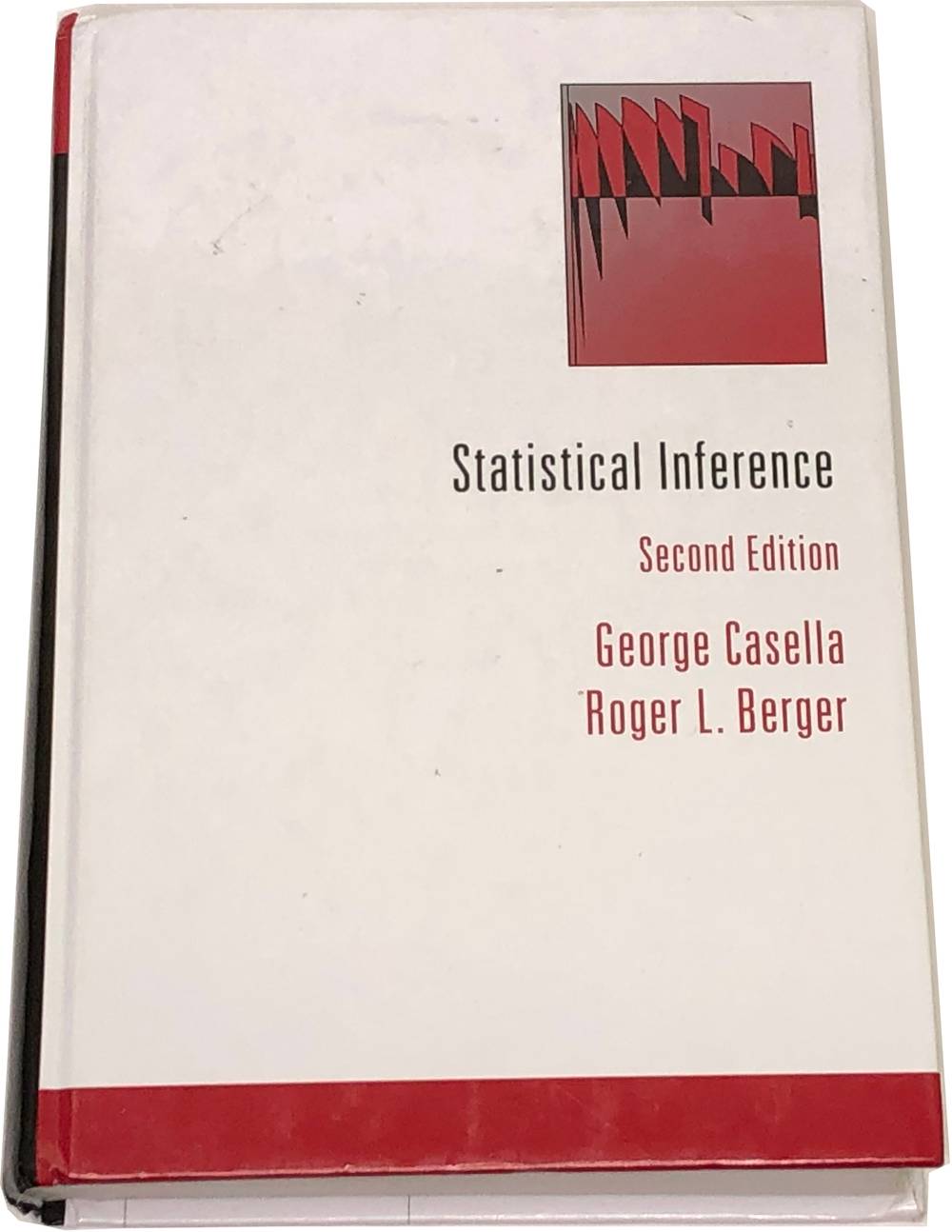Intermediate probability and statistics are a lot like elementary probability and statistics, but with less poncing about. Strong proficiency with calculus and linear algebra is assumed. Probability will is covered with challenging problems, classical statistics is covered in as general a fashion as can be achieved without measure theory, and a smattering of modern techniques are introduced. Intermediate probability and statistics is commonly taken by first-year graduate students to ensure they have the necessary background to carry out statistical analysis for their experiments.
Recommended Books
Statistical Inference
George Cassella And Roger L. Berger

Key Features
- In-text exercises
- Solutions to many exercises available online
- Errata
Key Topics
- Almost Sure Convergence
- Analysis of Variance
- Asymptotic
- Common Distributions
- Conditional Probability
- Consistency and Efficiency
- Convergence in Distribution
- Convergence in Probability
- Delta Method
- Distribution and Density Functions
- Expectations of Random Variables
- Hypothesis Testing
- Interval Estimation
- Likelihood Principle
- Likelihood Ratio Testing
- Linear Regression
- Logistic Regression
- Maximum Likelihood Estimation
- Point Estimation
- Probability Theory
- Random Vectors
- Sufficiency Principle
- The Law of Large Numbers
- The Central Limit Theorem
- Transformations of Random Variables
Description
This is a standard intermediate text. It has the usual probability introduction including multivariate probability, and it covers statistical concepts including: point estimation, hypothesis testing, interval estimation, ANOVA, and regression (including logistic regression). The exposition is very clear, and the exercises are challenging. If you find yourself spending an excessive amount of time on a particular exercise, you may wish to have a look at the solution before continuing. Some of the exercises require semi-heroic algebra. We heartily recommend this book; it is used for first-year graduate courses across the country.
All of Statistics
Larry Wasserman
Key Features
- In-text exercises
- Errata
Key Topics
- Bayesian Inference
- Causal Inference
- Classification
- Conditional Probability
- Confidence Sets
- Delta Method
- Distribution and Density Functions
- Expectations of Random Variables
- Graphical Models
- Hypothesis Testing
- Important Probability Distributions
- Linear and Logistic Regression
- Maximum Likelihood Estimation
- Multivariate Distributions
- Nonparametric Curve Estimation
- Parametric Inference
- Point Estimation
- Probability
- Probability and Expectation Inequalities
- Simulation
- Smoothing
- Statistical Decision Theory
- Stochastic Processes
- The Bootstrap
- The Central Limit Theorem
- The Law of Large Numbers
- Transformations of Random Variables
Description
This book is a great statistical reference. It doesn't have the exposition and discussion of Casella & Berger, which is why it is not our top pick, but it actually contains many more statistical methods. It even offers a lot of modern methods, although it doesn't quite live up to its title. If you have sufficient mathematical maturity, you could probably use this for a first pass at intermediate statistics, but it really works better after reading a book like Cassella and Berger's.

